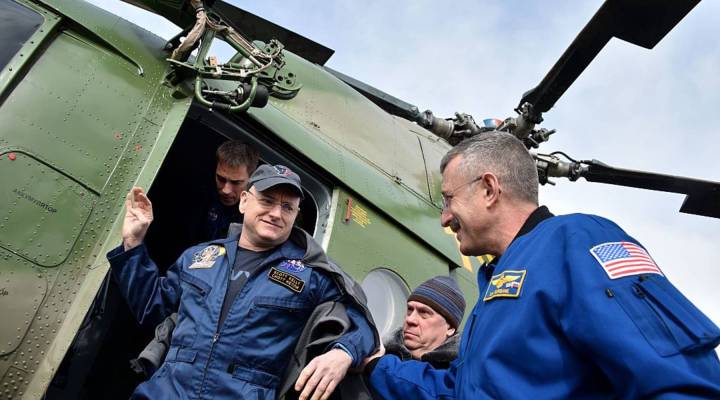
Russia’s space carpool delivers Scott Kelly to earth

NASA astronaut Scott Kelly and his fellow Russian cosmonaut just returned from more than a year in space. They rode back together on the Russian Soyuz capsule, which is pretty much the only ride in town.
“At this point, Russia has a monopoly on transportation,” said John Logsdon, founder of the Space Policy Institute at George Washington University. “So we either go with them…or we don’t go at all.”
Since the United States ended its shuttle program, NASA has bought seats from Russia on its shuttles.
“It’s currently costing us $75 million a seat,” said Logsdon. “And it will go up in 2018 to $82 million a seat.”
But it’s an interdependent relationship, with Russia relying on the U.S. for ground support from control centers in America, plus supplies and technology that keep the space station running.
“Both countries benefit from this,” said Todd Harrison of the Center for Strategic and International Studies. “If we pulled out of it, the Russians would not be able to operate the international space station. If the Russians pulled out, we wouldn’t be able to send and retrieve crews from the international space station.”
NASA has a commercial program where private companies will shuttle astronauts to the space station in a year or two. That should — eventually — make the trip a lot cheaper.
There’s a lot happening in the world. Through it all, Marketplace is here for you.
You rely on Marketplace to break down the world’s events and tell you how it affects you in a fact-based, approachable way. We rely on your financial support to keep making that possible.
Your donation today powers the independent journalism that you rely on. For just $5/month, you can help sustain Marketplace so we can keep reporting on the things that matter to you.


















